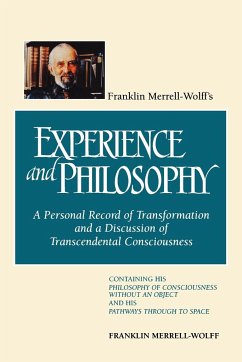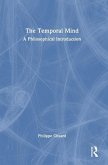Here is an account of the enlightenment experience and its consequences written by a trained philosopher and mathematician who is also a master of English prose. Merrell-Wolff experienced enlightenment, became established in the state, and wrote clearly about the value and nature of the knowledge he attained. This is a record of transformation in consciousness written during the actual process itself, supplying an unusually intimate view. The author faces the epistemological problem directly-the problem of demonstrating the reality and value of knowledge springing from mystical roots. He gives serious attention to the philosophical and psychological criticism, writing with an eye to the pitfalls indicated by such criticism. He did not write only for those who believe easily.
Bitte wählen Sie Ihr Anliegen aus.
Rechnungen
Retourenschein anfordern
Bestellstatus
Storno








